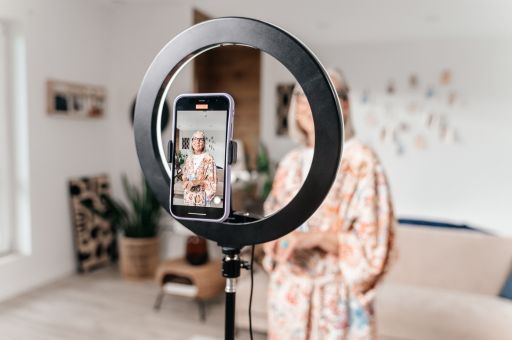Influencers have been a common term for some years now. The economic and media impact of these audiovisual celebrities has led to the regulation of their activity.
TDB keeps you informed. Follow us on Facebook, Twitter and Instagram
Influencers
In recent years, the dissemination of audiovisual content and advertising through social networks has grown exponentially, especially in the case of videos generated by the users themselves and uploaded to the platforms by themselves or through third parties. Of particular note are the so-called ‘vloggers’, ‘influencers’ or ‘content creators’, who are highly relevant in the audiovisual market from the point of view of consumption and advertising investment. This is particularly true among the younger audience, on whom they exert a notable social influence.
For this reason, the government has approved a regulation to regulate their activity in two essential areas: the protection of minors and the broadcasting of advertising content, in line with the European rules issued in recent years. This regulation defines these users of special relevance and regulates their activity, obliging them, among other aspects, to expressly identify advertising and to label content according to age. In this way, compliance with the General Law on Audiovisual Communication of 2022 is guaranteed for this type of content, and consumer protection in general is reinforced.
The regulation was approved by the Council of Ministers on 30 April at the proposal of the Ministry for Digital Transformation and the Civil Service. The minister, José Luis Escrivá, stressed that ‘the creators of audiovisual content on social networks are becoming increasingly important, so it is necessary to standardise them in some aspects with other actors in the audiovisual field’.
What is an influencer?
An influencer is someone who is able to attract attention and affect the decisions of others due to their authority, knowledge, position or relationship with their audience. They have followers in a particular niche, with whom they actively interact. This also makes them important assets in the development of communication, advertising or marketing campaigns.
Influencers carry out their activity in competition with other agents in the audiovisual and advertising market, and have certain characteristics that assimilate them to audiovisual communication service providers. Therefore, the new regulation seeks to extend to this group certain obligations in force for the rest of the sector, and thus guarantee a balance in the audiovisual ecosystem.
How do I know if I am an influencer?
The new regulation approved by the Government applies to those who use video exchange services through a platform and have the status of ‘user of special relevance’. To be considered as such, the following requirements must be met:
The first of these refers to revenues. These will have to be equal to or greater than 300,000 euros, and derive exclusively from the activity of users in the set of video-sharing services through the platform they use. This will take into account advertising revenue, payments made by the platforms themselves, fees and direct payments paid by their audience, contributions from public entities and any other income derived from their activity as content creators.
The second relates to the audience, which must be significant. Specifically, a user will be considered a user of special relevance if they have a number of followers equal to or greater than 1,000,000 on a single video-sharing service through a platform; or several followers equal to or greater than 2,000,000 on the set of platforms on which they carry out their activity.
Finally, they must have published or shared several videos equal to or greater than 24 in the previous calendar year, regardless of their duration.
What are the obligations of these users?
In compliance with the provisions of the General Law on Audiovisual Communication, content creators who meet the requirements of the previous section are subject to the following obligations:
A ban on tobacco advertising. No advertising of electronic cigarettes, cigars, tobacco, smoking herbs, or of the companies that produce the aforementioned products may be carried out.
The prohibition of advertising for medicines, medical devices or methods with a purported health purpose, when it does not respect the regulations on advertising and commercial promotion applicable to this sector.
The regulation of alcohol advertising. It is forbidden to advertise any product that exceeds 20 degrees of alcohol at any time outside the period between 01:00 and 05:00 in the morning. Advertising of alcoholic beverages of less than 20º may be permitted between 20:30 and 05:00. There are also other limitations on the content of this advertising, which may not be aimed at minors, associate alcohol consumption with social or personal success, or encourage unmoderated consumption.
Regulation of gambling. The advertising of betting and gambling is prohibited in all programming aimed at a potential child audience. In all other cases, it may only be broadcast, as a general rule, between 1:00 and 5:00 in the morning.
Protection of minors. Content must be labelled according to age.
Finally, the Royal Decree obliges users of special relevance to register in the ‘State Register of providers of audiovisual communication services, providers of video exchange services through platforms and providers of audiovisual communication service aggregation services’, provided for in Article 39 of the General Law on Audiovisual Communication. A period of two months from 2 May 2024 is set for this purpose.
